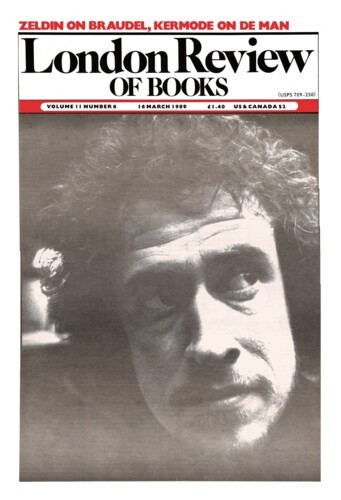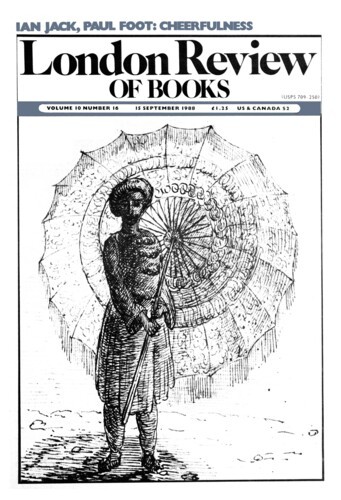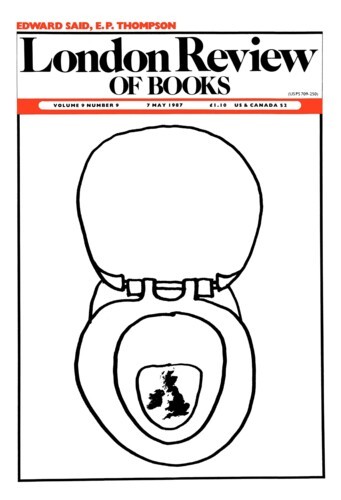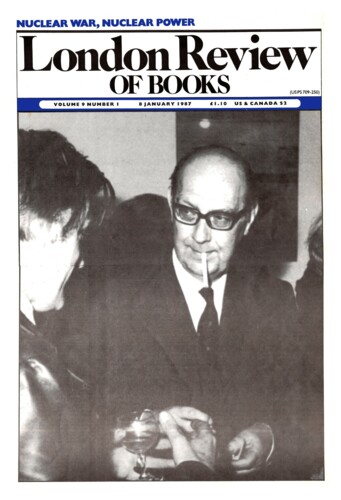Cheeky
Norman Page, 16 March 1989
Inside most collections of letters is another ghostly volume we are unable to read, for it contains all those letters that have been lost or destroyed. Hence a scholarly enterprise such as the Purdy/Millgate edition, now complete, of Hardy’s letters, handsomely produced and impeccably edited though it is – or perhaps precisely because it has such a finished and monumental look – can inadvertently create a false impression. ‘Collected letters’ means, after all, ‘surviving letters’, and even though so much is here one is bound to wonder what is missing. Consider the case of Hardy’s mother. Jemima Hardy died in her famous son’s 64th year, and it is surely inconceivable that he did not write to her from time to time during the years he spent in London, or that she did not preserve at least some of his letters. Yet all that turns up in these seven volumes is a single three-line postcard. Probably the famous Max Gate bonfires consumed the rest. These collected letters constitute, therefore, a text quite different from that of a novel or an autobiography, even though they may offer some of the same satisfactions. They are less a Greek urn than a heap of shards.’




